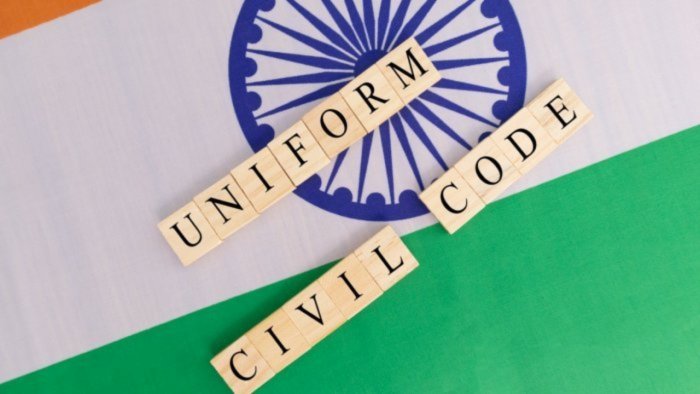Understanding BJP’s Uniform Civil Code Bill and Its Implementation

The ruling party – Bharatiya Janata Party (BJP), introduced a bill in Parliament to form a committee for the draft and enactment of a uniform civil code (UCC). The Bill has been moved for discussion during the Winter Session of Parliament.
Table of Contents
Uniform Civil Code Meaning
The UCC is a proposed set of laws governing matrimonial, property and inheritance matters of all citizens across India. These would replace personal laws based on religious scriptures and customs.
Supporters of the Uniform Civil Code Bill
Supporters of the Uniform Civil Code Article argue that it will promote equality and secularism by treating all people equally under the same laws, irrespective of their religion. They also say that the UCC will address gender justice by abolishing discriminatory practices in marriage, divorce and inheritance laws.
What is Uniform Civil Code Controversy?
The critics point out that the drafting and on-floor implementation of the Uniform Civil Code Article 44 is an extremely challenging task for any government. Firstly, it must have an extensive consultation with all stakeholders, including religious leaders, legal experts and representatives from minority communities. Moreover, it is vital that all communities are aware of the benefits of the new laws and are on board with their implementation. They must feel comfortable with the fact that these laws will protect their interests and their religious traditions are not being violated.
The issue is complex as the country is a jumble of different religions and cultures, making it difficult to come up with one law that will govern all communities. Furthermore, it will be necessary to ensure that the new laws do not infringe on the fundamental liberties of citizens guaranteed by the Constitution in any manner. In fact, the Uniform Civil Code bill must be able to provide equal protection and treatment to all citizens.
Careful Implementation is Must
In order to draft and implement the Uniform Civil Code in India, it is essential that all communities are informed about it and have an opportunity to give their inputs. This will help in the development of a law that will serve all citizens equally and avoid the problems faced by women and other minorities in the current system. The new law should be drafted with the aim of protecting women’s rights, as well as promoting the principles of secularism and universal human rights.
It is also important that the new laws do not discriminate against any individual based on their religion, caste or belief systems. This will require the implementation of a wide variety of reforms in existing laws, which will need to be carefully weighed against the cost and implications for individuals and society as a whole.
Positive Aspects of UCC
The draft also creates hope for members of the LGBTQIA+ community in India, as it includes provisions for same-sex marriages. This is something that has been long-awaited in India, as the current laws discriminate against them.
Also, the bill has been drafted after extensive research and consultations with various groups, and it is vital that these opinions are taken into account to ensure that the final laws are inclusive and represent all sections of society. One can also learn about the Uniform Civil Code in Hindi, as it is a crucial step in the journey towards a united, diverse and harmonious India.




